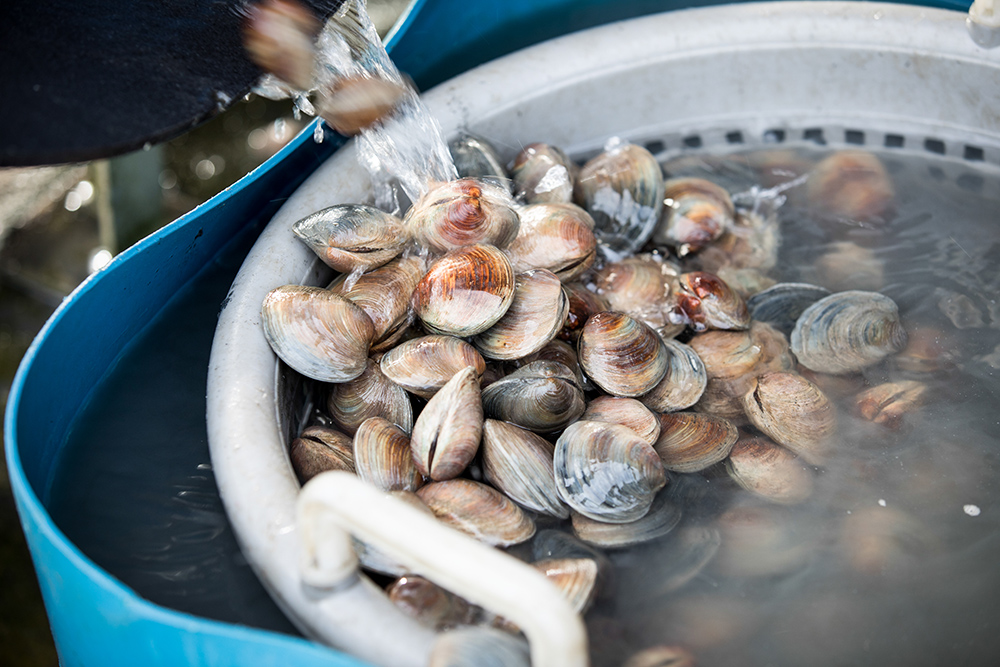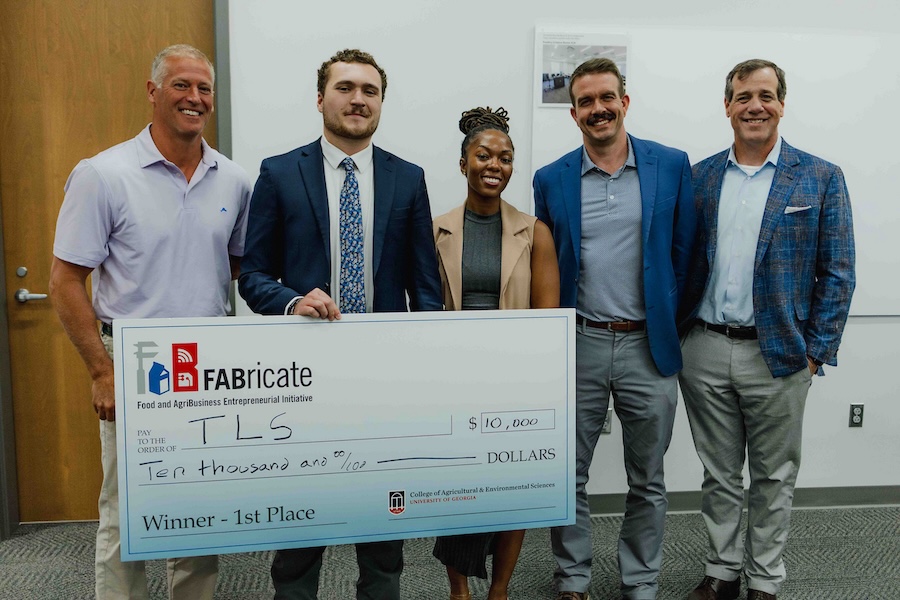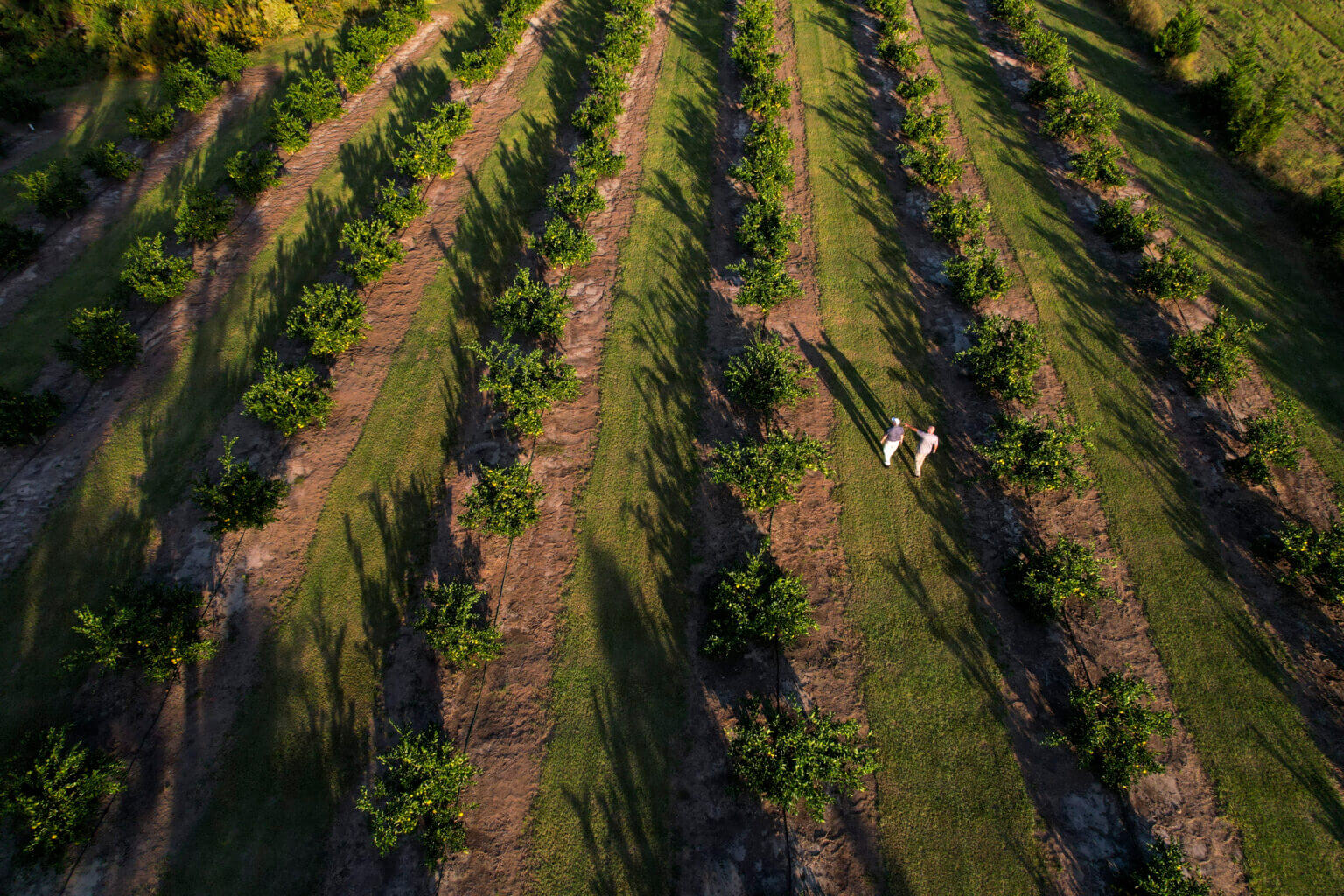By April Reese
University of Georgia

Volume XXVIII |
Improperly applied gardening chemicals may run off landscapes and pollute water. In some cases, gardening runoff has killed fish.
"The National Academy of Sciences reported that homeowners tend to use as much as 10 times more chemicals per acre (in and around their homes) than farmers use on their land," said Susan Varlamoff. She's an environmental sciences program coordinator with the University of Georgia College of Agricultural and Environmental Sciences.
"Our urban streams contain more pesticides, and at generally higher concentrations, than rural ones," she said.
Varlamoff said integrated pest management, or IPM, focuses on using cultural, mechanical and biological control methods in place of chemical pesticides in home landscapes.
Is it really a pest?
"Most people don't realize that only 3 percent of insects are pests," said Varlamoff, who is also a Georgia Master Gardener.
"It's important to know the difference between beneficial insects, which control pests naturally, and insects that devour your roses," she said.
Best method, least toxic
Once they identify the pest, gardeners who practice IPM use the best and least toxic combination of controls.
Cultural
- Use plants suited for local rainfall, sun exposure, temperature, etc. Choose pest-resistant plants as often as you can.
- Choose a turf variety well-suited to your soils and climate. This makes the grass more competitive with weeds.
- Rotate vegetable and annual plants to avoid reoccurring pest problems such as root-knot nematodes.
- Till soils to destroy pests and crop residue that may harbor pests.
- Plant vegetables early in the growing season to avoid damaging levels of pests that may occur later.
Mechanical
- Hand-destroy insect pests or hand-remove weeds if the pest density and number aren't excessive.
- Prune or cut out diseased or insect-infested plants or plant parts. This can be used to control cankers, stem galls and boring insects.
- Mow grass so you remove no more than one-third of the height. Scalping grass stresses it, dries it out and promotes insect pests such as chinch bugs.
- Mulch vegetable gardens and ornamental plants with 3 to 5 inches of compost, pine bark or and pine needles. This reduces weeds and the need for herbicides and prevents soil erosion. Mulch can be made from homemade compost.
- Direct water sprays at infested plants to reduce aphids, lacebugs and other insect pests on plants.
Biological
Parasites and predators in landscapes attack and kill insect pests. It's important to conserve and enhance naturally occurring biological control agents in the landscape and vegetable garden.
- Don't kill the good bugs. Before you grab the pesticide, learn the difference between beneficial insects and pests. In a well-balanced ecosystem, the good guys beat out the bad.
- Plant a variety of flowering annuals or perennials to provide more nectar sources and alternative prey for predators and parasites.
- Create landscape habitats that attract birds and other wildlife that prey on insect pests. For more information, contact the Georgia Wildlife Federation or visit www.gwf.org/education.htm .
Chemical
You may not always be able to control pests without using conventional chemicals.
"Pesticides are often an important component of an IPM program," Varlamoff said. "But you can harm people, pets and your environment if you use them irresponsibly. Like medicine, pesticides can have tremendous benefits, but misuse can have serious consequences."
- Read the label. Select a pesticide based on the target pest, the plants you want to protect, the application equipment you have and the pesticide hazards.
- Use the least toxic control for the pest. Pesticides also include horticultural oils and insecticidal soaps that are less toxic than conventional pesticides. They can effectively manage certain insects.
- Apply pesticides only to the intended area. Blanket coverage may destroy beneficial insects as well as pests.
"No single herbicide, insecticide or fungicide is appropriate for all landscape and vegetable pest problems," Varlamoff said.
For more information, see the Georgia Pest Control Handbook (www.ent.uga.edu/pest2001/ ) or Extension Toxicology Network at: (ace.orst.edu/info/extox net/).






.jpg)